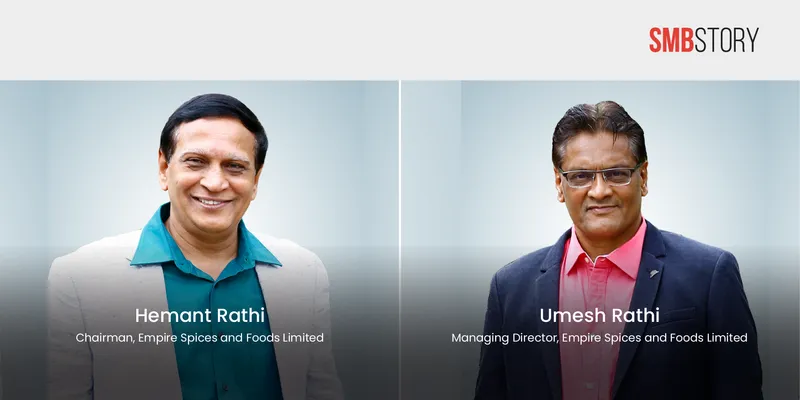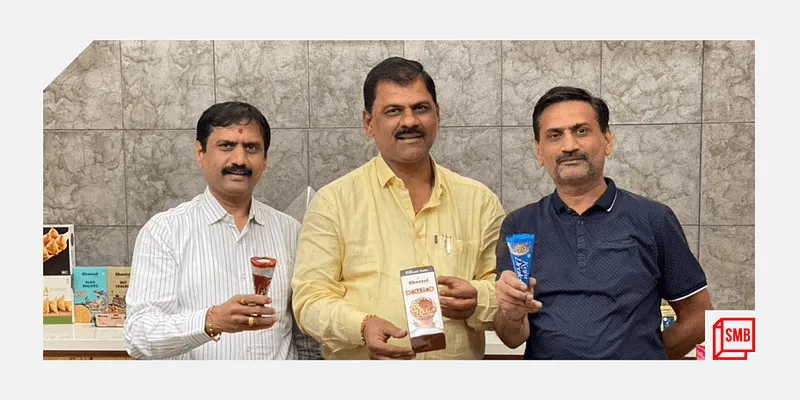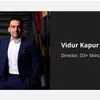Unity is Strength: These family businesses have gone from humble beginnings to multi-crore brands
Carrying forward a family business is not easy, which is why those that have stood the test of time without the backing of a strong surname are truly commendable. SMBStory brings you stories of Indian family businesses that were started from scratch and are famous names now
Be it Tata or Birla, Kirloskar or Ambani, India is known for its legacy of family businesses which contribute a significant chunk to the economy - over 70 percent to the national GDP.
One of the oldest and most prevalent forms of business ownership, the close-knit structure of Indian families fosters teamwork combined with respect to family values, which is said to be the reason behind the success of many these family businesses.
In today’s article, SMBStory compiles a list of lesser-known family businesses that are also creating waves in their own way. We bring you these stories from across the nooks and crannies of the country, and show you how these businesses manage to stay rooted even as they take global footsteps.
Ram Bandhu

Empire Spices and Foods recently signed up Bollywood actor Madhuri Dixit-Nene to endorse its popular flagship brand of pickles and papads, Ram Bandhu.
This partnership with the actor, according to Chairman Hemant Rathi, is like adding precious kesar (saffron spice) to a glass of milk.
A fast-growing FMCG company, offers a wide range of products, including pickles, papads, spices, ketchup, sauces, pastes, and chutneys. It is on a mission to expand its business and is reaching out to new markets.
Started in the 70s in Nashik, the brand Empire Spices and Foods includes names like Ram Bandhu, RBM, Temptin’, and Zaiqa.
The company’s genesis was the unique Nashik chivda mix that was initially manufactured and sold in the local markets. Gradually, neighbourhood women came asking for papad ingredients and senior Rathi realised the potential of having papad masala mix in varying quantities and even innovated to provide the ready-made papad dough.
“He had a vision of establishing a business that would provide high quality, convenient, and cost-efficient masala mixes and spices to take the load off of household kitchens,” states Hemant Rathi. Eventually, Hemant Rathi and his nephew Umesh Rathi, now the MD of the company, joined the family business in 1985 after their respective higher education, and by 1994, they formally registered the company as a closely held limited company.
“We had challenges with capital and struggled for nearly seven to eight years. Like the saying in Hindi, bahut papad bele humne (did a lot of hard work),” Hemant chuckles.
To stand out in the overcrowded papad and condiments market, the uncle and nephew team relied on their core principles of simplicity, cost, and convenience.
“There is a huge opportunity for growth in the pickle and papad market in India. Ram Bandhu is one of the leading brands in both the papad and pickle categories across India when it comes to household consumption. We have always been believers in adapting to changing tastes, trends, and technology,” says Umesh Rathi.
Today, the company sells 1,000 tons of papad and 6,000 tons of pickles yearly. It also sells 8 tons of sauces, a new edition in their product category, daily. “We are a profitable company and have seen an annual growth of 15-20 percent,” says Umesh Rathi, who looks after sales and marketing.
Sheetal Cool Products Ltd

Stories about people moving to big cities to chase their dreams are plenty but few have the grit to nurture their roots and find success in their home cities. Founders of (SCPL) are on a mission to put their city – Amreli— on the map.
“Is shehar ne hume bahot diya hai (this city has given us a lot), now it is time to give it back,” says Yash Bhuva, Executive Head of SCPL based out of Amreli in Gujarat.
SCPL was born when Jagdish Bhuva took a new step in his life, leaving the family’s agriculture occupation and starting a pan (betel leves) and cold drink counter shop by the name Sheetal Pan & Cold Drinks in a street in Amreli in 1987. His younger brothers, Bhupat, Dinesh and Sanjay soon joined him.
Beginning its journey from a pan shop in a street to building a publicly-listed food manufacturing company that aims to make Rs 300 crore turnover by the next fiscal year, SCPL has come a long way. The company is now eyeing capturing a pan-India market from Gujarat's Saurashtra region.
SCPL makes ice cream, dairy products, and namkeens apart from other food items. The state of Gujarat has now given the company a go-ahead to set up 50 ice cream parlours in the region, the largest so far after Amul.
But how did SCPL turn their small shop into a profitable business? Yash says it is because his father and uncles did not create the company as owners but to serve their society.
The founders’ dedication, grit, and perseverance made SCPL a publicly-listed company in 2017. SCPL now has a strong distribution network of over 300 distributors across six different states and has more than 35,000 retail outlets.
Bikano

After the Partition in 1947, businesses found themselves in a newly independent India, with a new set of rules and norms and finding new ground. Many entities had suffered, and people were on the lookout for new opportunities to make ends meet, making them travel places.
Lala Kedarnath Aggarwal also moved to Delhi from Bikaner to earn a livelihood and started selling traditional sweets and savouries in a trolley in Chandni Chowk. His hard work and luck favoured him, and the business soon took off. In a short while, he started a small tuck shop as ‘Bikaner Namkeen Bhandar’ in the same area, offering namkeens and snacks.
In due course, the establishment gained recognition as ‘Bikanervala’ and became popular for delivering bikaneri bhujia and other foods of authentic Indian flavours. In 1965, Lala’s son, Shyam Sundar Aggarwal, joined the business to expand Bikanervala across and outside the National Capital Region (NCR).
As of 2020, Bikanervala has grown to over 100 outlets in India.
Building on the legacy of Bikanervala, the family felt that they should take their culinary legacy beyond the borders of India. With the emergence of the packaged food industry in the 1980s, they could finally act upon their vision of expanding their business.
Shyam Sundar launched in 1988 to become a dominant FMCG player, all while retaining the quality of excellence as envisioned by his father.
Bikano now offers different varieties of namkeens, cookies, sweets, papad, syrups, and flour-based foods like matthi and samosa. It has over 270 domestic SKUs and more than 320 international SKUs, with frozen foods forming the backbone of its export business. It exports to 45 countries, including the US and the UK.
After 33 years since starting operations, Manish says Bikano now rakes an annual turnover of Rs 1,000 crore, with no plans of raising an IPO. Bikano also partnered with Indian Railways, and its products are now available on various trains and stations.
Ramsons Perfumes

European fragrances have dominated the Indian market and why not? Given the hype they have in the country, the national players have only felt left out. Even when they are offering good fragrances at an economical price, the luxury bias tends people to buy a foreign brand.
Though things have started to change with the rising disposable income of people, and the Indian perfume market is growing at around 15 percent each year, Sanjeev Pandey, a second-generation entrepreneur and Director of Mumbai-based Ramsons Perfumes, says that the fragrance market is at a very early stage in India.
In 1984, Sanjeev’s father Ramesh Pandey started a small perfume business in Mumbai to make quality perfumes available in India at affordable prices.
“My father was working with Birla Group. At the time, demand for perfumes existed but there were only a few local players. Perfume was considered a premium item, and there were limited customers who used foreign brands. This was the gap that our father wanted to fill, and he — along with his brothers — started ,” Sanjeev says.
The idea was simple: to make perfumes affordable so people from the middle-income group could also enjoy this “luxury” item.
In the initial days, Ramsons sourced perfumes from local manufacturers for reselling. In the mid-90s, the founder started an in-house production unit.
Fast forward 38 years, and Ramsons Perfumes is now a Rs 100 crore turnover family business with an omnichannel presence.
Until the mid-90s, Ramsons Perfumes was operating out of Mumbai and other nearby areas.
Sanjeev says his father was trying to foray into other states through distribution channels, but the pace picked up when the second generation entered the business.
“We are seven brothers, including my cousins, who are handling the business. We are heading different operations and have taken Ramsons Perfumes to new heights,” he says.
When Sanjeev joined the business in 2009, Ramsons’ turnover was Rs 1 crore. Since then, it has registered about 30-40 percent growth per year, and he claims that the company recorded a turnover of Rs 100 crore in FY21.
JK Masale

While India is home to several spice brands, here’s the story of a Kolkata-based spice manufacturing company whose history dates to the 1950s.
Shri Dhannalal Jain had been working as a labourer in Kolkata and had dreams of making it big in the city. While he used to load and unload goods from vans and trucks, he dreamt of doing something better and bigger.
Gradually, Dhannalal entered the small-time business of trading spices, which he would buy from different parts of the country and sell to shopkeepers in Kolkata’s Amartolla Street. When he realised that there was immense scope and opportunity in this segment, he decided to launch a business in 1957.
From trading, Dhannalal gradually shifted to manufacturing. He set up a unit in Kolkata in 1985 and went on to build four more units in Kolkata, Rajasthan, and Unjha (Gujarat) in the subsequent years.
His grandson and the company’s Chief Marketing Director, Vijay Jain, recounts how Dhannalal earned the nickname ‘Jeera King’ or JK in Kolkata, for supplying jeera (cumin). “Taking a cue from this, Dhannalal named the company ,” he shares.
Vijay says that over the years, the market has changed by leaps and bounds.
“Initially, everything was managed by Dhannalal – from creating policies within the company to handling employees,” he adds.
Today, members of the family involved in the business have assumed greater roles and responsibilities. From Dhannalal’s stand-alone spirit, the business has shifted to being run through delegated roles.
After Dhannalal, his seven sons – Bhagchand Jain, Jaikumar Jain, Shanti Kumar Jain, Chandra Kumar Jain, Rajendra Kumar Jain, Ashok Jain, Jitendra Jain – joined the company. Vijay, Bhagchand’s son, too joined the company in 1999.
He says that while each generation has had to face a different set of challenges to take the business forward, it is the new generation that is responsible for bringing in “fresh ideas and innovation.”
The company clocked Rs 300 crore turnover in FY21.
Edited by Anju Narayanan








1553156987557.png?mode=crop&crop=faces&ar=1%3A1&format=auto&w=1920&q=75)
